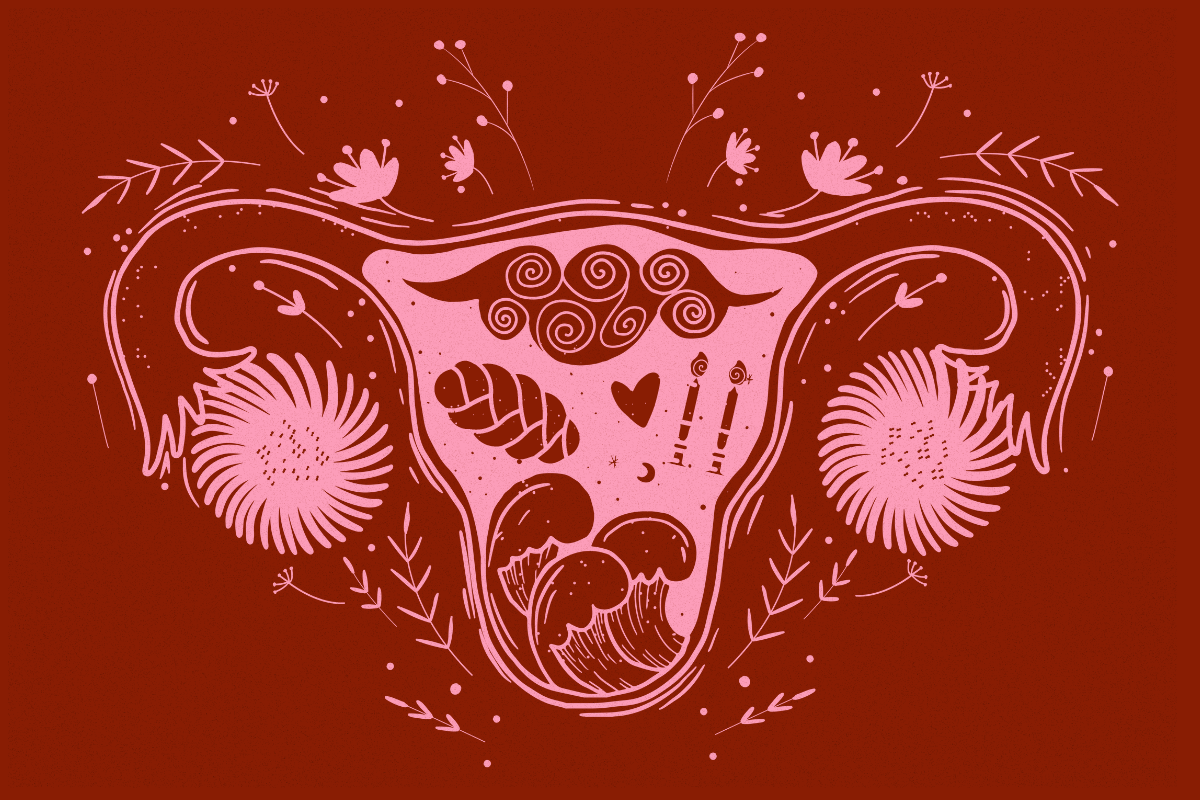This article was sponsored by National Council of Jewish Women.
When Jews around the United States gather in synagogues on Feb. 9-10 to hear the weekly Torah portion of Parashat Mishpatim, countless communities will be using the occasion to focus on one value in particular: reproductive freedom.
Every year, National Council of Jewish Women makes the issue the focus of Parashat Mishpatim, which this year falls on the second weekend of February. Dubbed Repro Shabbat, the idea is to honor reproductive freedom and educate communities on its importance as a Jewish value.
With Roe v. Wade having been overturned and reproductive rights under threat in states and courts around the country, the issue of reproductive freedom is more important than ever, says Shira Zemel, co-director of the group’s abortion access campaign.
“We wanted to launch a broad campaign that reclaims the narrative on abortion and religion and really ground ourselves in Jewish texts,” Zemel said.
Parashat Mishpatim (Exodus chapters 21-24) details a litany of ethical dictates and ritual practices, and it contains the verses in the Torah most commonly referenced as the foundation of Judaism’s approach to reproductive health, rights and justice: the story of an accidental miscarriage that demonstrates how Judaism views the personhood of a fetus.
The Repro Shabbat toolkit offers a variety of resources for individuals, organizations, communities, and clergy to discuss and promote reproductive freedom and its bases in Judaism.
“It is a starting place for a conversation about abortion, not an ending place,” says Rabbi Joshua Fixler of Congregation Emanu El in Houston.
NCJW offers a trove of resources for Repro Shabbat, including toolkits to guide text study around Judaism and reproductive freedom, participation booklets with special prayers, artwork, and even Spotify music playlists. The organization is partnering with synagogues and 75 Jewish communal organizations, including Hillel, Hadassah and Moishe House, plus major advocacy organizations like Planned Parenthood and Physicians for Reproductive Health, to hold both large-scale and intimate events.
Sydney Hastings-Wilkins, a University of Michigan junior, attended a Repro Shabbat event last year at Hillel. This year, she plans to mark the Shabbat with a potluck dinner in her apartment for about a dozen friends.
“The NCJW resources and handouts are really helpful for bringing everyone together to have these discussions about abortion,” Hastings-Wilkins said. “As a Jewish woman, it’s so important to me to pay attention to these issues.”
The American Jewish community is broadly supportive of reproductive freedom, with over 80% of American Jews saying abortion should be legal in all or most cases, according to surveys by Gallup and the Pew Research Center.
Given the growing restrictions to abortion rights around the United States, it’s more important than ever to have these conversations and share what Jewish tradition has to say about choice and reproductive freedom, Fixler says.
Roe v. Wade was overturned in June 2022. In September 2021, Texas passed the Texas Heartbeat Act, which bans abortion after the detection of embryonic or fetal cardiac activity — something that usually occurs after about six weeks of pregnancy. Other states are actively considering legislation to restrict abortion in their jurisdictions.
The case of FDA v. Alliance for Hippocratic Medicine, which is slated to be heard by a court in late March, will decide the fate of mifepristone, a drug commonly used to terminate pregnancy.
“God empowers us to be moral decision makers,” Fixler said. “Sacred acts can never be coerced; and Jews do not agree on many issues like they do on this one.”
Zemel says she hopes that events like Repro Shabbat will keep the issue of reproductive freedom “front and center in the Jewish community.”
Repro Shabbat can also be meaningful for couples doing family planning, said Rachel Kline, the Chicago community engagement director for Honeymoon Israel, which provides trips to Israel for couples with at least one Jewish partner.
This year, Kline is also hosting several couples in her home for a Repro Shabbat Havdalah, where they will write letters of thanks to abortion providers.
“It brings people together by combining learning, advocacy and service in a Jewish way,” Kline said.
In St. Louis, Rabbi Andrea Goldstein of Congregation Shaare Emeth plans to incorporate a special study session for Repro Shabbat and collect signatures in support of upcoming abortion-rights ballot initiatives in Missouri. The congregation also will host an artist-in-residence who uses her music and storytelling to educate about reproductive freedom.
“It’s an important programmatic idea spearheaded by NCJW to use one of our Shabbats to highlight reproductive justice,” Goldstein said. “People grew complacent thinking Roe v. Wade would always be in place. It’s important to remind them of what’s at stake.”
In Denver, a community-wide Havdalah service with several local Jewish organizations is planned. Rabbi Sarah Shulman of the Hebrew Educational Alliance in Denver considers part of her role as a clergywoman to help others understand the differences between the Jewish view on reproductive freedom and the traditional Christian perspective. Shulman says she is not afraid to share from the pulpit her own personal stories related to reproductive access.
“Our tradition has been patriarchal for a long time. It’s important to uplift women’s voices,” Shulman said. “This is not just a woman’s issue, it’s a family issue.”
This article is sponsored by and produced in collaboration with National Council of Jewish Women, the oldest Jewish feminist civil rights organization working for equity and justice for women, children, and families in the United States and Israel. This article was produced by Hey Alma’s native content team.



